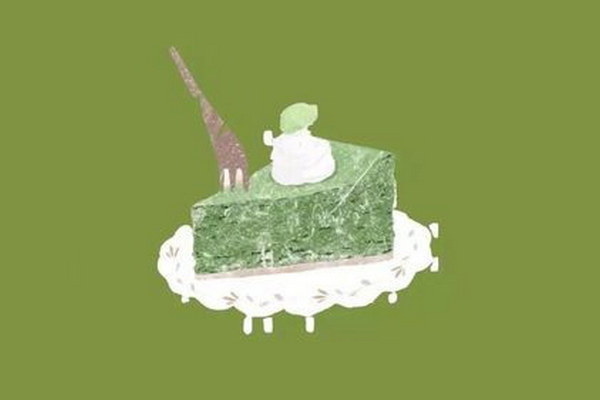Liliputins-150
All what Antiochus IV Epiphanes did to my people is Greek to me ... "
Judas Maccabeus
Liliputins. What, the heck, is this ?
http://www.stihi.ru/2012/08/18/5368
***
Greek to me
From Wikipedia, the free encyclopedia
That's Greek to me or It's (all) Greek to me is an idiom/dead metaphor in English, expressing that something is not understandable.
The idiom is typically used with respect to the foreign nature, complexity or imprecision of verbal or written expression or diagram, often containing excessive use of jargon, dialect, mathematics, science, symbols, or diagrams. The metaphor makes reference to Greek (either ancient or modern), as an archetypal foreign form of communication both written and spoken.
Origins
It may have been a direct translation of a similar phrase in Latin: "Graecum est; non legitur" ("it is Greek, [therefore] it cannot be read"). This phrase was increasingly used by monk scribes in the Middle Ages, as knowledge of the Greek alphabet and language was dwindling among those who were copying manuscripts in monastic libraries.[citation needed]
The usage of the metaphor in English traces back to early modern times, and is used in 1599 in Shakespeare's play Julius Caesar, as spoken by Servilius Casca to Cassius after a festival in which Caesar was offered a crown:
CASSIUS: Did Cicero say any thing?
CASCA: Ay, he spoke Greek.
CASSIUS: To what effect?
CASCA: Nay, an I tell you that, I'll ne'er look you i' the face again: but those that understood him smiled at one another and shook their heads; but, for mine own part, it was Greek to me. I could tell you more news too: Marullus and Flavius, for pulling scarfs off Caesar's images, are put to silence. Fare you well. There was more foolery yet, if I could remember it.
(William Shakespeare, The Tragedy of Julius Caesar (1599))
Here, Casca's literal ignorance of Greek is the source of the phrase, using its common meaning to play on the uncertainty among the conspirators about Cicero's attitude to Caesar's increasingly regal behaviour. Shakespeare was not the only author to use the expression.
It was also used in 1603 by Thomas Dekker in his play Patient Grissel:
FAR: Asking for a Greek poet, to him he fails. I’ll be sworn he knows not so much as one character of the tongue.
RIC: Why, then it’s Greek to him.
The expression is almost exclusively used with reference to the speaker (generally "Greek to me"); Dekker's "Greek to him" is rare.
Another meaning attributed to the phrase implies that "it's all Greek to me" could be seen as a wordplay for: "everything is Greek for me"[3].
Variations
Different languages have similar formulations. Many have picked the point of reference to be a foreign language with another alphabet or writing system.
This is an example of the usage of demonyms in relation to the ability of a people to be understood, comparable to the development of the words barbarian (one who babbles), Nemecky (Slavic for "one who is not understood", indicating Germans).
In other languages[edit]In an article published by Arnold L. Rosenberg in the language journal Lingvisticж Investigationes, he claimed that there was a popular "consensus" that Chinese was the "hardest" language, since various non-English languages most frequently used the Chinese language in their equivalent expression to the English idiom "it's all Greek to me".[1] Also, David Moser of the University of Michigan Center for Chinese Studies made the same claim as Arnold L. Rosenberg.[2]
Latin = Graecum est; non legitur [graikum est; non legitur] This is Greek; it can't be read= Greek
German = Fachchinesisch = technical Chinese = Chinese
German = Boehmische Doerfer = Bohemian villages = Czech
German = das kommt mir Spanish vor = Spanish
Russian = Это для меня китайская грамота.
French = C'est du chinois. = It's Chinese = Chinese
***
Judas Maccabeus
Judah Maccabee (or Judas Maccabeus, also spelled Machabeus, or Maccabaeus, Hebrew: Y'hudhah HaMakabi) was a Kohen and a son of the Jewish priest Mattathias. He led the Maccabean revolt against the Seleucid Empire (167–160 BCE) and is acclaimed as one of the greatest warriors in Jewish history alongside Joshua, Gideon and David.
The Jewish feast of Hanukkah ("Dedication") commemorates the restoration of Jewish worship at the temple in Jerusalem in 164 BCE, after Judah Maccabee removed the Hellenistic statuary.
Life
Judah was the third son of Mattathias the Hasmonean, a Jewish priest from the village of Modiin. In 167 BCE Mattathias, together with his sons Judah, Eleazar, Simon, John, and Jonathan, started a revolt against the Seleucid ruler Antiochus IV Epiphanes, who since 175 BCE had issued decrees that forbade Jewish religious practices. After Mattathias's death in 166 BCE, Judah assumed leadership of the revolt in accordance with the deathbed disposition of his father. The First Book of Maccabees[1] praises Judah's valor and military talent, suggesting that those qualities made Judah a natural choice for the new commander.
In the early days of the rebellion, Judah received a surname Maccabee. Several explanations have been put forward for this surname. One suggestion is that the name derives from the Aramaic maqqaba ("makebet" in modern Hebrew), "hammer" or "sledgehammer" (cf. the cognomen of Charles Martel, the 8th century Frankish leader), in recognition of his ferocity in battle. It is also possible that the name Maccabee is an acronym for the Torah verse Mi kamokha ba'elim Adonai, "Who among the gods is like you, O Adonai?", his battle-cry to motivate troops. (Exodus 15:11). Rabbi Moshe Schreiber writes that it is an acronym for his father's name Mattityahu Kohen Ben Yochanan. Some scholars maintain that the name is a shortened form of the Hebrew maqqab-ya ?hы (from na ?qab, ‘‘to mark, to designate’’), meaning ‘‘the one designated by Yahweh.’[2]
Mindful of the superiority of Seleucid forces during the first two years of the revolt, Judah's strategy was to avoid any engagement with their regular army, and to resort to guerrilla warfare, in order to give them a feeling of insecurity. The strategy enabled Judah to win a string of victories. At the battle of Nahal el-Haramiah (wadi haramia), he defeated a small Assyrian force under the command of Apollonius, governor of Samaria, who was killed. Judah took possession of Apollonius's sword and used it until his death as a symbol of vengeance. After Nahal el-Haramiah, recruits flocked to the Jewish cause.
Early victories
Shortly thereafter, Judah routed a larger Seleucid army under the command of Seron near Beth-Horon, largely thanks to a good choice of battlefield. Then in the Battle of Emmaus, Judah proceeded to defeat the Seleucid forces led by generals Nicanor and Gorgias. This force was dispatched by Lysias, whom Antiochus left as viceroy after departing on a campaign against the Parthians. By a forced night march, Judah succeeded in eluding Gorgias, who had intended to attack and destroy the Jewish forces in their camp with his cavalry. While Gorgias was searching for him in the mountains, Judah made a surprise attack upon the Seleucid camp and defeated the Seleucid at the Battle of Emmaus. The Seleucid commander had no alternative but to withdraw to the coast.
The defeat at Emmaus convinced Lysias that he must prepare for a serious and prolonged war. He accordingly assembled a new and larger army and marched with it on Judea from the south via Idumea. After several years of conflict Judah drove out his foes from Jerusalem, except for the garrison in the citadel of Acra. He purified the defiled Temple of Jerusalem and on the 25th of Kislev (December 14, 164 BCE) restored the service in the Temple. The reconsecration of the Temple became a permanent Jewish holiday, Hanukkah, which continued even after the Temple was destroyed in 70 CE. Hanukkah is still celebrated annually. The liberation of Jerusalem was the first step on the road to ultimate independence.
***
Antiochus the Madman
An in depth view of the king in the story of Hanukkah.
By Rabbi Paul Steinberg
Reprinted with permission from Celebrating the Jewish Year:
The Winter Holidays, published by Jewish Publication Society.
In 175 BCE, amid this social-political unrest, a new ruler, Antiochus IV, ascended to the throne of Greco-Syria.
Palestine in the Hellenistic Age
Palestine Goes Greek
As did many rulers, he appended the title Epiphanes ("God Manifest") to his name; but many people referred to him instead as Antiochus Epimames ("The Madman").
Immediately upon assuming power, he decided to pursue the conquest of Egypt, which no other Seleucid king had been able to accomplish. The Romans were advancing eastward and expanding their empire. If Antiochus could conquer and annex Egypt, his kingdom's size and power would be greatly increased and the Romans might be resisted.
But before doing so, he would have to stabilize his own country and consolidate political support by uniting the disparate cultural, social, and religious elements. Under Alexander the Great, hellenization had been a movement that still allowed room for cultural variation; under Antiochus, hellenization was intended to take a big step further and become the agent of cultural totalitarianism.
Antiochus' Relationship with Jews
The Jews were clearly targets of Antiochus's strategy of hellenization. He understood that to ultimately succeed in Egypt, he would need to disrupt the influence of the Jews within his own territories. He decided to tackle the priesthood in Jerusalem by replacing Onias the Third, the latest Kohen Gadol, with Onias's brother Joshua, who was loyal to the Greeks. Joshua became High Priest and immediately changed his name to Jason.
To a certain extent, Antiochus's plan worked. Jason submitted to the king's will and helped implement the new totalitarian doctrine. Jerusalem became a little version of Antioch, replete with a gymnasium where the Jewish Kohanim often played Greek sports in the nude. Meanwhile, King Antiochus had access to the Temple treasury to help fund his military campaign to conquer Egypt.
All these activities fueled the restless anger of the pious Jewish peasants, who became even more enraged when Antiochus allowed Menelaus, a Tobiad, to purchase the position of Kohen Gadol. They were incensed that this sacred position, for which Menelaus had outbid Jason, was for sale at all. But to make matters worse, Tobiads were not even descendants of Aaron, who was the brother of Moses and the traditional ancestor of all Kohanim.
As a condition of his appointment, Menelaus had promised he would increase the tax revenue. When he failed to do so, he was summoned to appear before the king. While away, Menalaus left his brother Lysimachus as High Priest in his stead. Lysimachus proceeded to rob the Temple of many of its sacred vessels, an action that led to riots in the streets, during which the supporters of Jason (even knowing all his faults) battled the supporters of Menelaus.
Expansion in the Middle East
Meanwhile, after a decisive battle in 169-8 BCE, Antiochus was on the brink of annexing Egypt to Syria. The Roman army, however, was moving victoriously eastward. With its own sights set upon Egypt, Rome warned Antiochus not to expand his kingdom in that direction. Antiochus was not powerful enough to defy the mighty Roman Empire; and finding his ambitions for conquest thwarted, he would become even more aggressive toward the people he already ruled.
While Antiochus was away, Jason had managed to retake Jerusalem from Menelaus--a victory based on the rumor that Antiochus was dead. But he was not able to seize control of the government and was forced to flee. Antiochus, furious with the rebellion, returned to Jerusalem, slaughtered thousands of people, and reinstalled Menelaus. Once Antiochus departed and heard that a second rebellion had broken out, he outlawed Judaism. Among the now-forbidden practices were the rite of circumcision, the study of Torah, and the keeping of kashrut (Jewish dietary laws).
In the Jews's Holy Temple, he placed a statue of Zeus--the god he believed was manifest in his own royal being--and sacrificed swine on the altar. He stripped the Temple of its sacred vessels, including the seven-branched golden menorah, and stole the silver and gold coin.
Judas Maccabeus
Liliputins. What, the heck, is this ?
http://www.stihi.ru/2012/08/18/5368
***
Greek to me
From Wikipedia, the free encyclopedia
That's Greek to me or It's (all) Greek to me is an idiom/dead metaphor in English, expressing that something is not understandable.
The idiom is typically used with respect to the foreign nature, complexity or imprecision of verbal or written expression or diagram, often containing excessive use of jargon, dialect, mathematics, science, symbols, or diagrams. The metaphor makes reference to Greek (either ancient or modern), as an archetypal foreign form of communication both written and spoken.
Origins
It may have been a direct translation of a similar phrase in Latin: "Graecum est; non legitur" ("it is Greek, [therefore] it cannot be read"). This phrase was increasingly used by monk scribes in the Middle Ages, as knowledge of the Greek alphabet and language was dwindling among those who were copying manuscripts in monastic libraries.[citation needed]
The usage of the metaphor in English traces back to early modern times, and is used in 1599 in Shakespeare's play Julius Caesar, as spoken by Servilius Casca to Cassius after a festival in which Caesar was offered a crown:
CASSIUS: Did Cicero say any thing?
CASCA: Ay, he spoke Greek.
CASSIUS: To what effect?
CASCA: Nay, an I tell you that, I'll ne'er look you i' the face again: but those that understood him smiled at one another and shook their heads; but, for mine own part, it was Greek to me. I could tell you more news too: Marullus and Flavius, for pulling scarfs off Caesar's images, are put to silence. Fare you well. There was more foolery yet, if I could remember it.
(William Shakespeare, The Tragedy of Julius Caesar (1599))
Here, Casca's literal ignorance of Greek is the source of the phrase, using its common meaning to play on the uncertainty among the conspirators about Cicero's attitude to Caesar's increasingly regal behaviour. Shakespeare was not the only author to use the expression.
It was also used in 1603 by Thomas Dekker in his play Patient Grissel:
FAR: Asking for a Greek poet, to him he fails. I’ll be sworn he knows not so much as one character of the tongue.
RIC: Why, then it’s Greek to him.
The expression is almost exclusively used with reference to the speaker (generally "Greek to me"); Dekker's "Greek to him" is rare.
Another meaning attributed to the phrase implies that "it's all Greek to me" could be seen as a wordplay for: "everything is Greek for me"[3].
Variations
Different languages have similar formulations. Many have picked the point of reference to be a foreign language with another alphabet or writing system.
This is an example of the usage of demonyms in relation to the ability of a people to be understood, comparable to the development of the words barbarian (one who babbles), Nemecky (Slavic for "one who is not understood", indicating Germans).
In other languages[edit]In an article published by Arnold L. Rosenberg in the language journal Lingvisticж Investigationes, he claimed that there was a popular "consensus" that Chinese was the "hardest" language, since various non-English languages most frequently used the Chinese language in their equivalent expression to the English idiom "it's all Greek to me".[1] Also, David Moser of the University of Michigan Center for Chinese Studies made the same claim as Arnold L. Rosenberg.[2]
Latin = Graecum est; non legitur [graikum est; non legitur] This is Greek; it can't be read= Greek
German = Fachchinesisch = technical Chinese = Chinese
German = Boehmische Doerfer = Bohemian villages = Czech
German = das kommt mir Spanish vor = Spanish
Russian = Это для меня китайская грамота.
French = C'est du chinois. = It's Chinese = Chinese
***
Judas Maccabeus
Judah Maccabee (or Judas Maccabeus, also spelled Machabeus, or Maccabaeus, Hebrew: Y'hudhah HaMakabi) was a Kohen and a son of the Jewish priest Mattathias. He led the Maccabean revolt against the Seleucid Empire (167–160 BCE) and is acclaimed as one of the greatest warriors in Jewish history alongside Joshua, Gideon and David.
The Jewish feast of Hanukkah ("Dedication") commemorates the restoration of Jewish worship at the temple in Jerusalem in 164 BCE, after Judah Maccabee removed the Hellenistic statuary.
Life
Judah was the third son of Mattathias the Hasmonean, a Jewish priest from the village of Modiin. In 167 BCE Mattathias, together with his sons Judah, Eleazar, Simon, John, and Jonathan, started a revolt against the Seleucid ruler Antiochus IV Epiphanes, who since 175 BCE had issued decrees that forbade Jewish religious practices. After Mattathias's death in 166 BCE, Judah assumed leadership of the revolt in accordance with the deathbed disposition of his father. The First Book of Maccabees[1] praises Judah's valor and military talent, suggesting that those qualities made Judah a natural choice for the new commander.
In the early days of the rebellion, Judah received a surname Maccabee. Several explanations have been put forward for this surname. One suggestion is that the name derives from the Aramaic maqqaba ("makebet" in modern Hebrew), "hammer" or "sledgehammer" (cf. the cognomen of Charles Martel, the 8th century Frankish leader), in recognition of his ferocity in battle. It is also possible that the name Maccabee is an acronym for the Torah verse Mi kamokha ba'elim Adonai, "Who among the gods is like you, O Adonai?", his battle-cry to motivate troops. (Exodus 15:11). Rabbi Moshe Schreiber writes that it is an acronym for his father's name Mattityahu Kohen Ben Yochanan. Some scholars maintain that the name is a shortened form of the Hebrew maqqab-ya ?hы (from na ?qab, ‘‘to mark, to designate’’), meaning ‘‘the one designated by Yahweh.’[2]
Mindful of the superiority of Seleucid forces during the first two years of the revolt, Judah's strategy was to avoid any engagement with their regular army, and to resort to guerrilla warfare, in order to give them a feeling of insecurity. The strategy enabled Judah to win a string of victories. At the battle of Nahal el-Haramiah (wadi haramia), he defeated a small Assyrian force under the command of Apollonius, governor of Samaria, who was killed. Judah took possession of Apollonius's sword and used it until his death as a symbol of vengeance. After Nahal el-Haramiah, recruits flocked to the Jewish cause.
Early victories
Shortly thereafter, Judah routed a larger Seleucid army under the command of Seron near Beth-Horon, largely thanks to a good choice of battlefield. Then in the Battle of Emmaus, Judah proceeded to defeat the Seleucid forces led by generals Nicanor and Gorgias. This force was dispatched by Lysias, whom Antiochus left as viceroy after departing on a campaign against the Parthians. By a forced night march, Judah succeeded in eluding Gorgias, who had intended to attack and destroy the Jewish forces in their camp with his cavalry. While Gorgias was searching for him in the mountains, Judah made a surprise attack upon the Seleucid camp and defeated the Seleucid at the Battle of Emmaus. The Seleucid commander had no alternative but to withdraw to the coast.
The defeat at Emmaus convinced Lysias that he must prepare for a serious and prolonged war. He accordingly assembled a new and larger army and marched with it on Judea from the south via Idumea. After several years of conflict Judah drove out his foes from Jerusalem, except for the garrison in the citadel of Acra. He purified the defiled Temple of Jerusalem and on the 25th of Kislev (December 14, 164 BCE) restored the service in the Temple. The reconsecration of the Temple became a permanent Jewish holiday, Hanukkah, which continued even after the Temple was destroyed in 70 CE. Hanukkah is still celebrated annually. The liberation of Jerusalem was the first step on the road to ultimate independence.
***
Antiochus the Madman
An in depth view of the king in the story of Hanukkah.
By Rabbi Paul Steinberg
Reprinted with permission from Celebrating the Jewish Year:
The Winter Holidays, published by Jewish Publication Society.
In 175 BCE, amid this social-political unrest, a new ruler, Antiochus IV, ascended to the throne of Greco-Syria.
Palestine in the Hellenistic Age
Palestine Goes Greek
As did many rulers, he appended the title Epiphanes ("God Manifest") to his name; but many people referred to him instead as Antiochus Epimames ("The Madman").
Immediately upon assuming power, he decided to pursue the conquest of Egypt, which no other Seleucid king had been able to accomplish. The Romans were advancing eastward and expanding their empire. If Antiochus could conquer and annex Egypt, his kingdom's size and power would be greatly increased and the Romans might be resisted.
But before doing so, he would have to stabilize his own country and consolidate political support by uniting the disparate cultural, social, and religious elements. Under Alexander the Great, hellenization had been a movement that still allowed room for cultural variation; under Antiochus, hellenization was intended to take a big step further and become the agent of cultural totalitarianism.
Antiochus' Relationship with Jews
The Jews were clearly targets of Antiochus's strategy of hellenization. He understood that to ultimately succeed in Egypt, he would need to disrupt the influence of the Jews within his own territories. He decided to tackle the priesthood in Jerusalem by replacing Onias the Third, the latest Kohen Gadol, with Onias's brother Joshua, who was loyal to the Greeks. Joshua became High Priest and immediately changed his name to Jason.
To a certain extent, Antiochus's plan worked. Jason submitted to the king's will and helped implement the new totalitarian doctrine. Jerusalem became a little version of Antioch, replete with a gymnasium where the Jewish Kohanim often played Greek sports in the nude. Meanwhile, King Antiochus had access to the Temple treasury to help fund his military campaign to conquer Egypt.
All these activities fueled the restless anger of the pious Jewish peasants, who became even more enraged when Antiochus allowed Menelaus, a Tobiad, to purchase the position of Kohen Gadol. They were incensed that this sacred position, for which Menelaus had outbid Jason, was for sale at all. But to make matters worse, Tobiads were not even descendants of Aaron, who was the brother of Moses and the traditional ancestor of all Kohanim.
As a condition of his appointment, Menelaus had promised he would increase the tax revenue. When he failed to do so, he was summoned to appear before the king. While away, Menalaus left his brother Lysimachus as High Priest in his stead. Lysimachus proceeded to rob the Temple of many of its sacred vessels, an action that led to riots in the streets, during which the supporters of Jason (even knowing all his faults) battled the supporters of Menelaus.
Expansion in the Middle East
Meanwhile, after a decisive battle in 169-8 BCE, Antiochus was on the brink of annexing Egypt to Syria. The Roman army, however, was moving victoriously eastward. With its own sights set upon Egypt, Rome warned Antiochus not to expand his kingdom in that direction. Antiochus was not powerful enough to defy the mighty Roman Empire; and finding his ambitions for conquest thwarted, he would become even more aggressive toward the people he already ruled.
While Antiochus was away, Jason had managed to retake Jerusalem from Menelaus--a victory based on the rumor that Antiochus was dead. But he was not able to seize control of the government and was forced to flee. Antiochus, furious with the rebellion, returned to Jerusalem, slaughtered thousands of people, and reinstalled Menelaus. Once Antiochus departed and heard that a second rebellion had broken out, he outlawed Judaism. Among the now-forbidden practices were the rite of circumcision, the study of Torah, and the keeping of kashrut (Jewish dietary laws).
In the Jews's Holy Temple, he placed a statue of Zeus--the god he believed was manifest in his own royal being--and sacrificed swine on the altar. He stripped the Temple of its sacred vessels, including the seven-branched golden menorah, and stole the silver and gold coin.
Метки:









